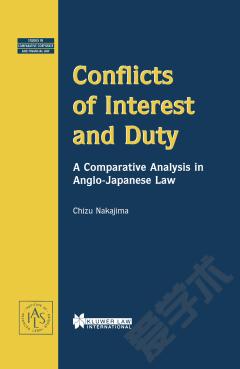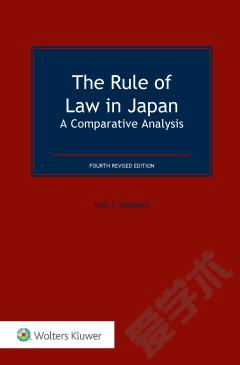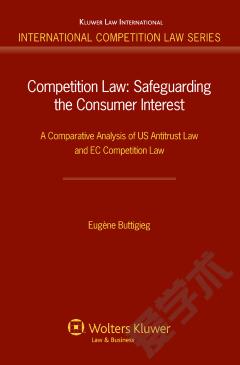Conflicts of Interest and Duty —— A Comparative Analysis in Anglo-Japanese Law
----- 利益与责任的冲突:英国与日本法比较分析
The almost relentless concentration of capital and the amalgamation of services within the financial services industries of the UK, the US and Japan have created an unparalleled potential for the development and exploitation of conflicts of interest and duty. While these pressures are not new to those who handle other people's wealth, given the vital importance of the major financial markets as efficient and fair allocators of capital, the implications, legal and otherwise, of such conflicts are of considerable practical significance to intermediaries and those whom they serve.Conflicts of Interest and Duty focuses on the identification, control and implications of conflicts of interest and duty in these three major financial markets. The pervading effect of US securities law is analysed, as is the pragmatism of the English common law, and the hybrid response of Japanese law and regulators.The work explores in legal and business terms the notion of conflict of interest and duty, from the perspective of investors, financial intermediaries and those concerned to ensure fairness and probity in the markets. Consequently it will be of interest to all those who manage or handle other people's investments, their professional advisers, the clients themselves, those charged with regulating the markets and those responsible for framing the law. Having regard to the practical importance of US federal law and English common law and the essentially civil origins of Japanese commercial law, the reach of this book is truly international. Few, if any, regulatory systems in today's global market remain uninfluenced by the legal experience of the UK, the US and Japan.Table of ContentsPreface. Table of Cases. Table of Statutes and Statutory Instruments.1. Introduction. 2. The Duties of Financial Intermediaries in English Law with Particular Reference to Conflicts of Interest. 3. Conflicts of Interest in Japan. 4. Imputation of Knowledge. 5. Duties of Adviser and Information Provider. 6. Insider Dealing Regulation in the UK. 7. Insider Dealing Regulation in Japan. 8. Money Laundering in the UK: The Potential for Conflict. 9. Anti-Money Laundering Legislation and its Implications for Financial Institutions in Japan. 10. The 'Chinese Wall'. 11. A Conclusion - to Conflict? Index.
{{comment.content}}








 京公网安备 11010802027623号
京公网安备 11010802027623号